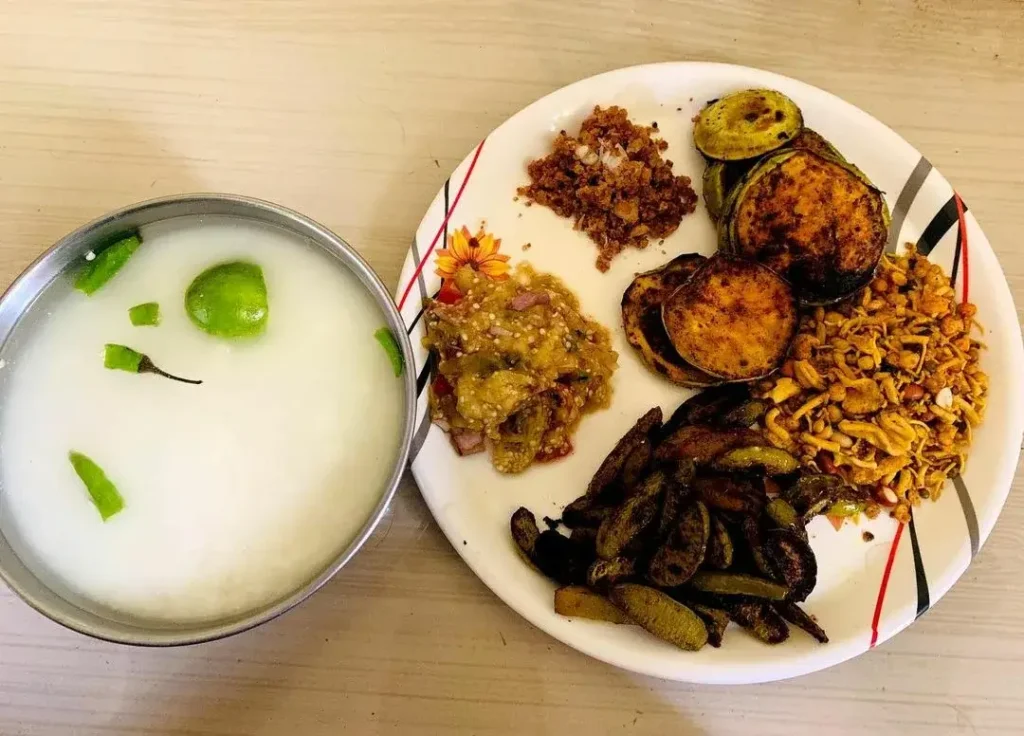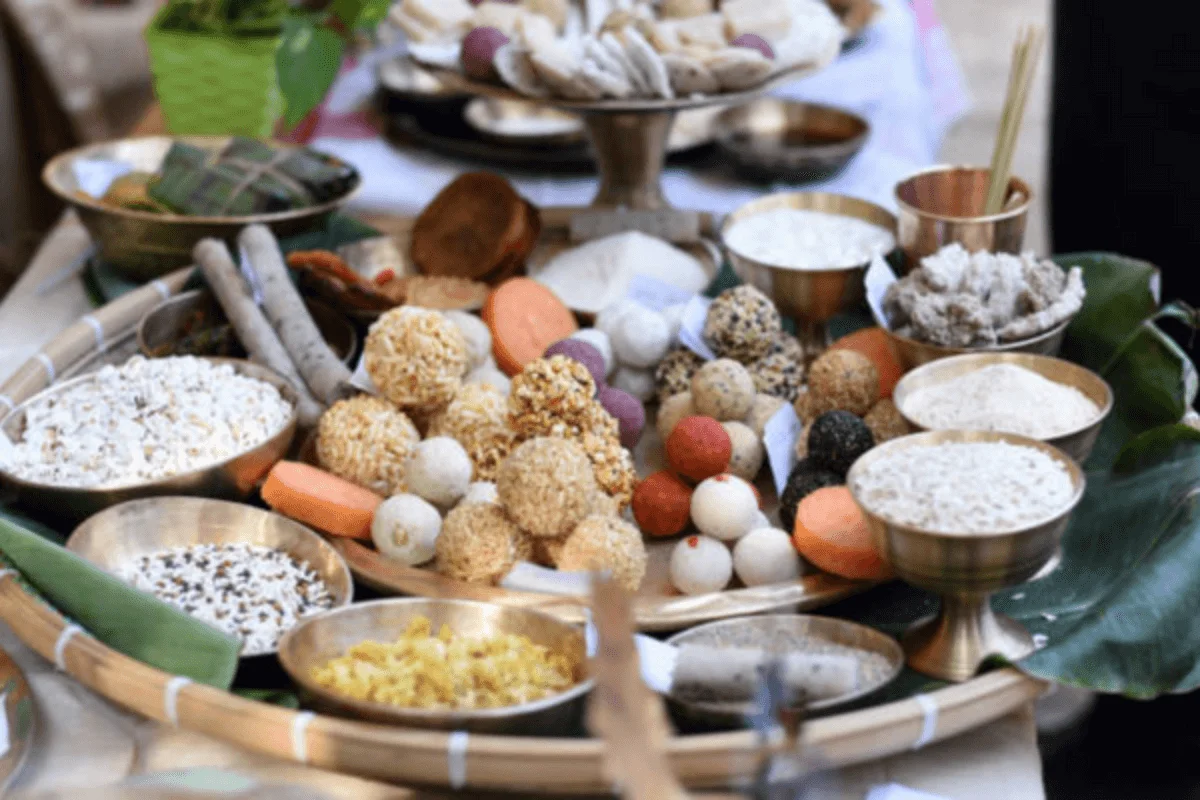Assam, a land of diverse cultures and rich heritage, boasts a culinary tradition as vibrant as its landscapes. Traditional Assamese cuisine, deeply rooted in local flavors and culinary techniques, offers a delectable experience for those eager to explore its gastronomic wonders.
Exploring Assam’s Culinary Tapestry
The Essence of Assamese Flavors
Assamese cuisine is a delightful amalgamation of flavors, reflecting the region’s geographical diversity and cultural influences. The use of indigenous herbs, spices, and aromatic rice varieties defines the core of Assamese cooking. Mustard oil, a staple in Assamese kitchens, adds a distinctive pungency to the dishes, creating a symphony of tastes that dance on the palate.
Staple Delights: Rice and Fish
Rice: As with many Asian cultures, rice is the staple food of Assam. The state is renowned for its aromatic varieties of rice, with Joha and Bora Saul being among the most cherished. A traditional Assamese meal is incomplete without a generous serving of perfectly cooked rice.
Fish: Given Assam’s abundant water resources, fish holds a special place in Assamese cuisine. Whether it’s the tangy fish curry, known as Assam Laksa, or the smoked fish delicacy, Bhut Jolokia Masor Tenga, Assamese kitchens showcase the richness of river and freshwater fish.
Gastronomic Marvels: Traditional Assamese Dishes
Assam Laksa: A Flavorful Fish Extravaganza
Assam Laksa, a soul-warming fish curry, stands out as a quintessential Assamese dish. Prepared with a medley of aromatic spices and freshwater fish, this dish captivates with its robust flavor profile. The tanginess of tamarind and the heat of green chilies create a culinary masterpiece that tantalizes taste buds.
Bhut Jolokia Masor Tenga: The Spicy Delight

Masor Tenga, a sour fish curry, takes a fiery twist with the inclusion of Bhut Jolokia, one of the world’s hottest chilies. The dish exemplifies the Assamese love for bold and spicy flavors. The Bhut Jolokia adds a layer of complexity, making this curry an adventurous gastronomic journey.
Poita Bhat: Fermented Rice Delight

Poita Bhat, fermented rice soaked overnight and consumed the next day, showcases the resourcefulness of Assamese cuisine. This humble dish, often accompanied by green chilies and mashed potatoes, reflects the simplicity and sustainability inherent in Assamese culinary practices.
Culinary Traditions and Festivals
Bihu: A Festival of Culinary Delights

Bihu, Assam’s Harvest Festival: Celebrated with zest and zeal, Bihu brings forth a culinary extravaganza. Traditional sweets like Til Pitha and Laru grace the tables, providing a sweet contrast to the spicy and savory dishes that dominate the festival feasts.
Bhaona, the Traditional Theater of Assam: Bhaona performances, integral to Assamese culture, are often accompanied by communal feasts. These gatherings showcase the community spirit of Assam, with a diverse array of dishes bringing people together.
In our quest to savor the best of Assamese cuisine, it’s essential to explore related blogs on Kihikila.in for a more comprehensive understanding. Check out these articles for a deeper dive into Assamese culinary traditions:
- Assamese Festivals and Food Galore: Uncover the connection between Assamese festivals and the delightful array of dishes that grace the celebratory tables.
- Assam’s Culinary Heritage: Beyond the Ordinary: Explore the lesser-known facets of Assamese cuisine, discovering hidden gems that add to the region’s gastronomic charm.
FAQs: Navigating the Assamese Culinary Landscape
Q: What makes Assamese cuisine unique?
A: Assamese cuisine stands out for its diverse flavors, incorporating indigenous ingredients and traditional cooking methods, creating a culinary experience like no other.
Q: Is mustard oil essential in Assamese cooking?
A: Yes, mustard oil is a key ingredient, imparting a distinct flavor to Assamese dishes and playing a vital role in the region’s culinary identity.
Unveiling the Culinary Tapestry of Assam
Embark on a culinary odyssey through Assam’s traditional fare, where each dish tells a story of tradition, community, and the diverse landscape that shapes Assamese cuisine. From the tangy delights of Assam Laksa to the fiery notes of Bhut Jolokia Masor Tenga, Assamese culinary treasures await those ready to explore the flavors of this enchanting region.




